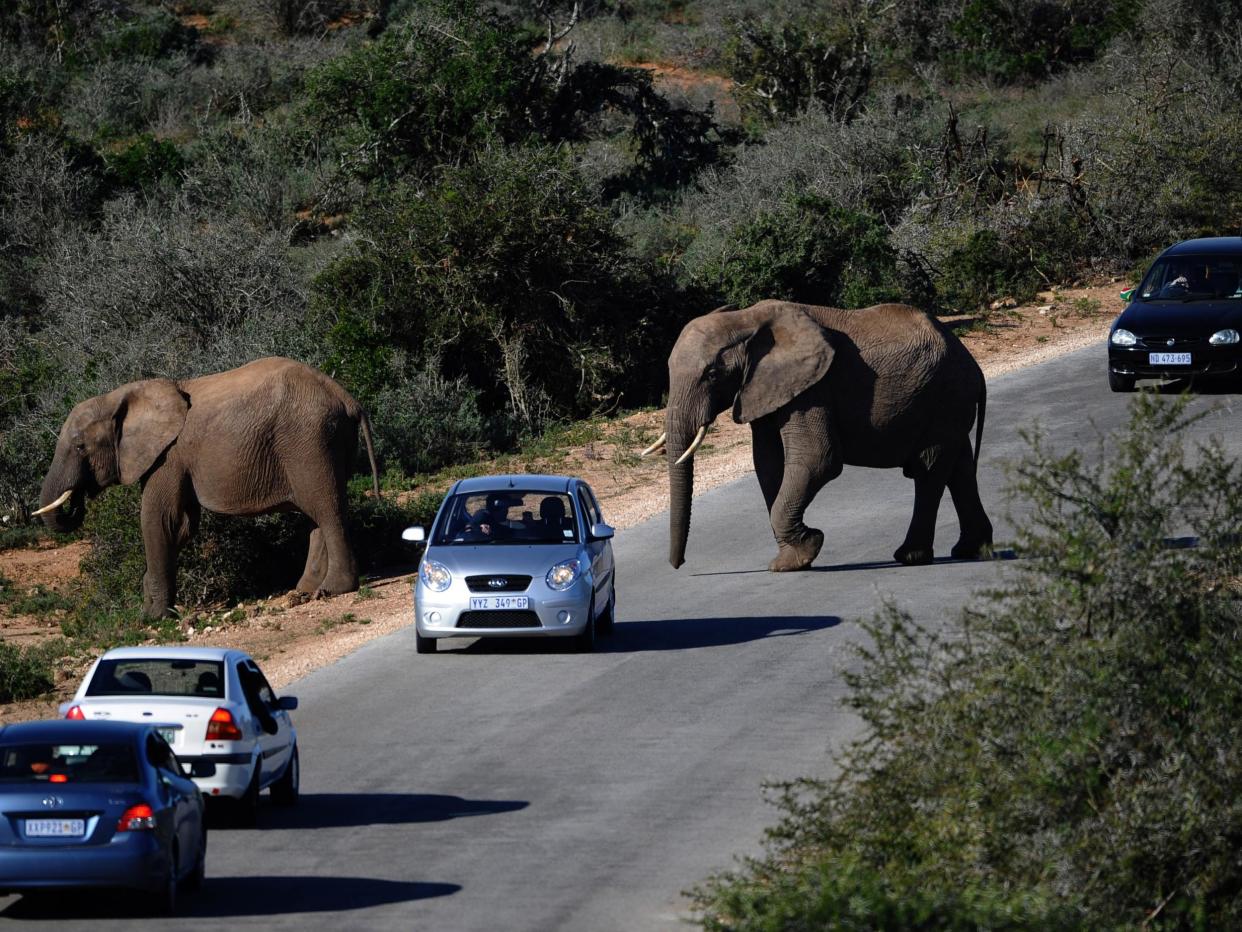Herd of elephants electrocuted after struggle to lap up water from a leaking pipe

A herd of elephants were electrocuted when they knocked down a power line after an apparent struggle between them to lap up water gushing from a leaking pipe, officials said.
Nine of the creatures died in the freak accident when a current from downed cables passed through the pool of water where they stood, near the village of Dukwi in central Botswana.
An image showed the animals keeled over, with blood flowing from one of their heads. They were thought to have wandered into the area from a nearby game reserve.
The director of Wildlife and National Parks, Otisitswe Tiroyamodimo, said it appeared the elephants had been jostling each other to get to the water when they came across the broken supply line.
He told Reuters: "Investigations are still at a preliminary stage, but what we have discovered so far is that the elephants were helping themselves to water from a damaged supply pipe.
"The elephants were electrocuted when they knocked down power lines, which fell into the gushing pool of water.”
The country’s ministry of Wildlife, Environment and Tourism confirmed the accident and said it has launched an investigation.
Botswana has one of the world’s biggest elephant populations – which numbers about 150,000, depending on the migration season.
Elephants normally live in the wild but often move near human settlements in search of water, in the country that is generally arid.
The animal’s population is under threat by poachers, and they are being slaughtered in their thousands every year across Africa by hunters in pursuit of their ivory, figures by the Great Elephant census showed.
The animal welfare group said nearly a third of Africa’s elephants had disappeared in the past seven years, and they predicted half of its population will be gone in less than a decade.

 Yahoo News
Yahoo News 
